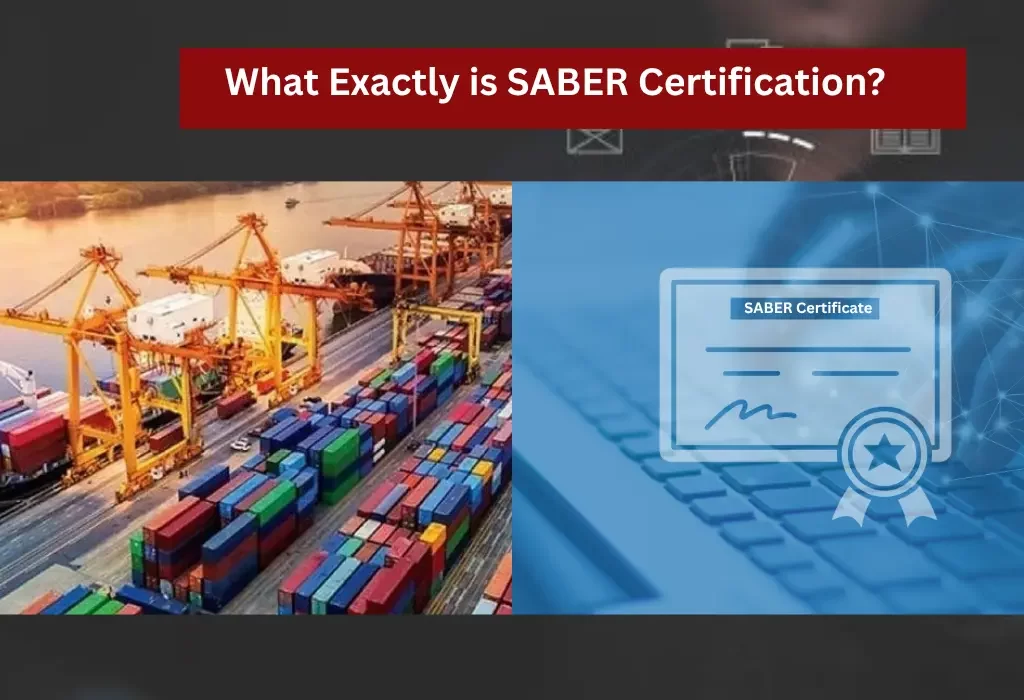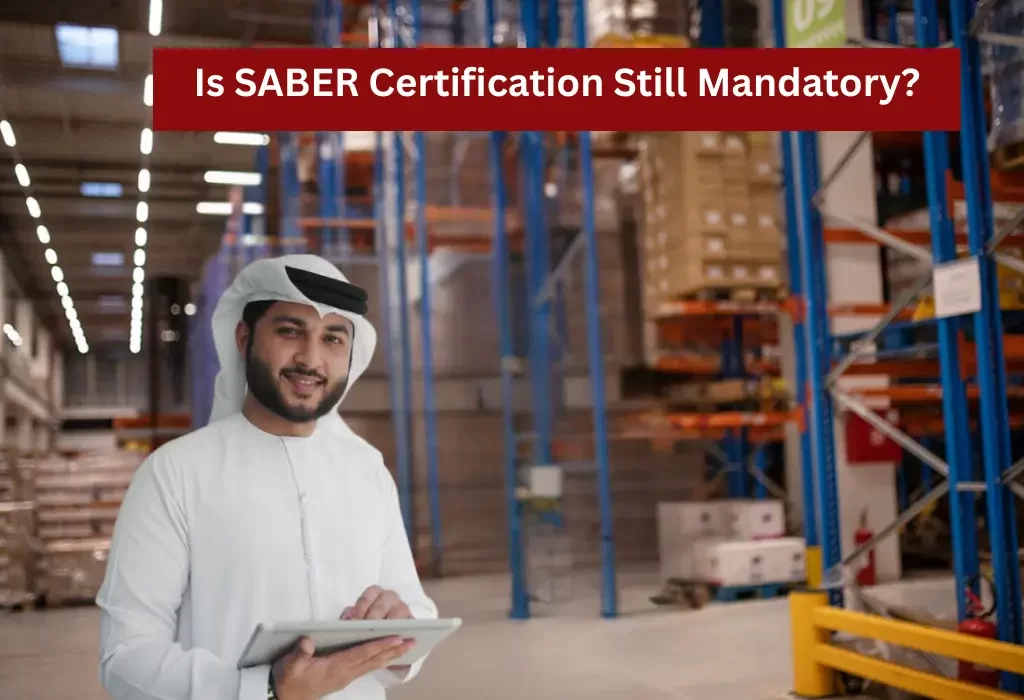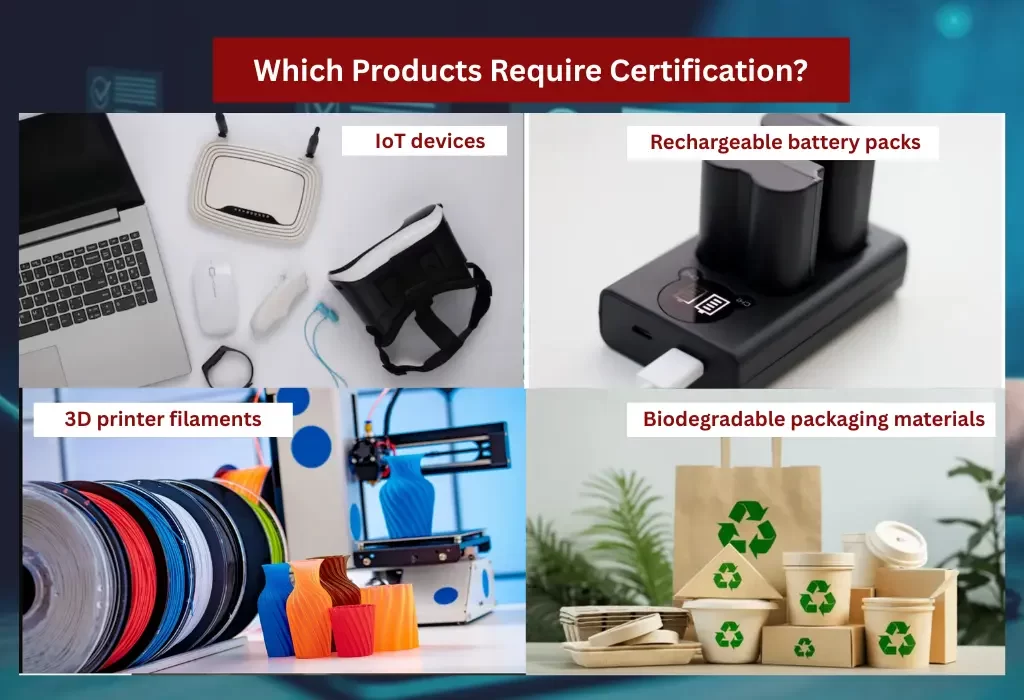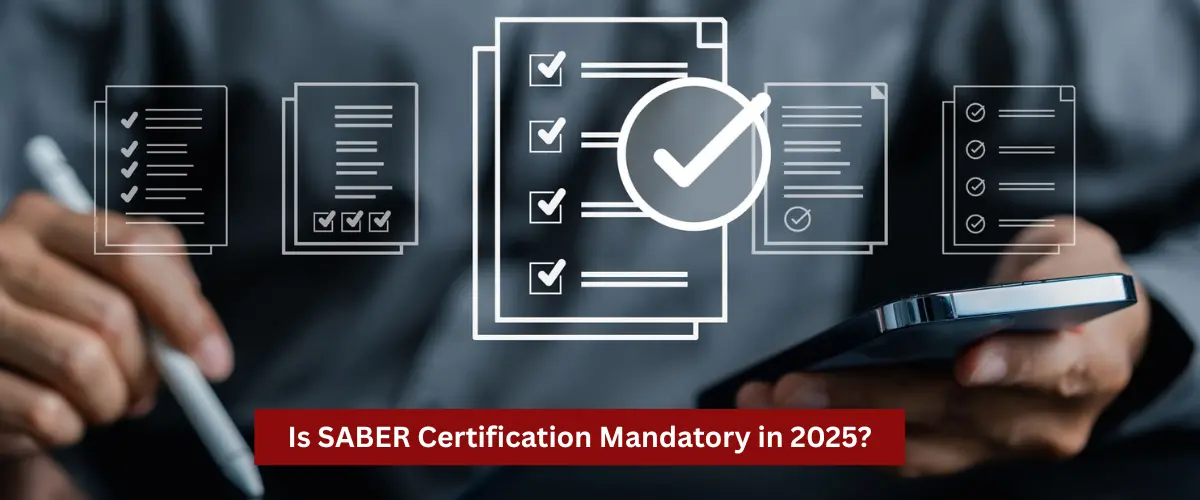If you’re importing goods to Saudi Arabia, you’ve likely heard about SABER certification. But with new 2025 regulations now in effect, many businesses are asking: Is this still mandatory? What’s changed? After reviewing the latest updates on SABER, we’ll clarify the current requirements and how they impact your imports.
What Exactly is SABER Certification?

SABER (Saudi Product Safety Program) is Saudi Arabia’s digital conformity assessment system, operated by SASO. Think of it as a quality checkpoint ensuring products meet Saudi technical regulations before they reach customs.
Why It Matters More in 2025
This year, Saudi Arabia rolled out significant upgrades:
- Stricter digital controls: The old portal was retired – all applications now go through SABER 2.0.
- Blockchain integration: Certificates now use NFT technology to prevent forgery.
- New compliance categories: Products like smart home devices and EV chargers were added to the regulated list.
Is SABER Certification Still Mandatory?

Short answer: Yes, with tighter enforcement.
Key Changes Importers Should Note
- Pre-registration requirement: High-risk products (e.g., children’s toys, electrical equipment) now need documentation submitted 30 days pre-shipment.
- Post-market surveillance: Saudi authorities now conduct random batch testing on 5% of cleared shipments.
- Penalty increases: Repeat violations can trigger fines up to SAR 200,000 (up from SAR 100,000 in 2024).
Which Products Require SABER Certificate?

While the full list is extensive, these new 2025 additions surprised many businesses:
- IoT devices (smart sensors, home automation systems)
- Rechargeable battery packs
- 3D printer filaments
- Biodegradable packaging materials
Navigating the 2025 Certification Process
Step 1: Documentation (The 2025 Challenge)
Gathering paperwork has become more complex:
- Test reports must now include blockchain verification from SASO-accredited labs.
- Technical files require additional sustainability disclosures for certain products.
Step 2: Risk Classification
Your product will be categorized as:
- Low risk (e.g., office supplies) – Self-declaration allowed
- Medium risk (e.g., furniture) – Documentary review
- High risk (e.g., electronics) – Sample testing + factory audit
Step 3: Timeline Realities
While SABER promises:
- 24-hour processing for low-risk goods
- 10-day turnaround for high-risk items
Common Pitfalls (And How to Avoid Them)
After analyzing 2025 rejection cases, these issues keep recurring:
- Using outdated test reports
Solution: Ensure your lab reports are dated after January 2025 and include blockchain IDs. - Missing the pre-registration window
Solution: Set calendar reminders 35 days before shipment. - Underestimating post-approval checks
Solution: Maintain batch records for at least 2 years after clearance.
The Cost Factor
The 2025 fee structure introduced annual maintenance charges:
| Risk Level | Application Fee | Yearly Renewal |
| Low Risk | SAR 650 | SAR 300 |
| High Risk | SAR 2,500 | SAR 1,200 |
Conclusion
SABER certification remains mandatory for most imports, with stricter 2025 rules. New categories like smart devices and eco-friendly materials now require certification. The biggest operational changes include 30-day pre-registration, blockchain-based documentation, and random post-clearance inspections.
While the system adds compliance steps, it ultimately protects businesses from costly customs disputes. Those who adapt quickly will gain a competitive edge in the Saudi market.
🚀 Need Help Navigating SABER 2025?
Don’t risk delays or fines! Radhi Custom Clearance Co. specializes in seamless SABER certification for businesses of all sizes. Our experts handle:
✅ Pre-registration & documentation
✅ Blockchain-verified test reports
✅ Post-market compliance tracking
Get a FREE consultation today and ensure your shipments clear Saudi customs without hiccups!


Add a Comment